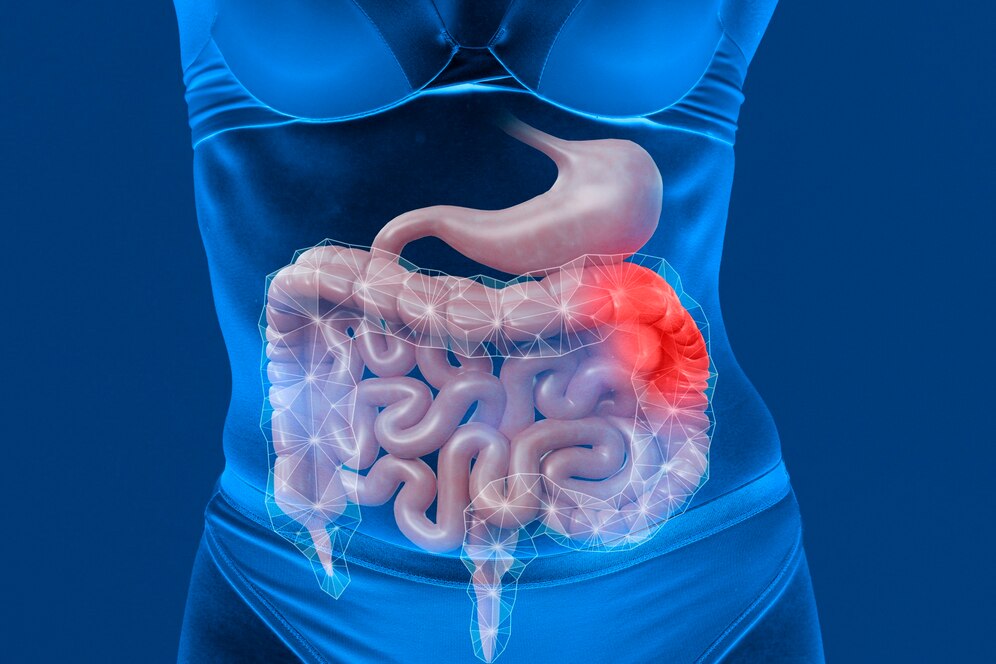In Chinese Medicine, which goes back thousands of years, there is a basic understanding of the necessity of a healthy digestive system. In fact, they believe all disease begins in the gut. Without the proper absorption of nutrients, the body cannot maintain its functions and structure. Without the elimination of wastes, the body accumulates toxins. Between 70-80% of the immune system is in the gut, – another reason it needs to function appropriately. This concept is scientifically documented and is a foundation in modern functional and integrative medicine.
The digestive process begins in the mouth. When a person sees, smells, and starts chewing food, digestive juices from the salivary glands begin to be released in the mouth and a signal is sent to the stomach to begin releasing its juices. This explains the importance of chewing your food well, releasing more digestive enzymes to assist the mechanical breaking down process.
When the mouth is finished with its job of reducing the food into a mass (bolus), the mass moves down through the esophagus to the stomach. This is a key area for protein and connective tissue digestion, destruction of parasites, yeasts, viruses, bacteria and general disinfection. If the stomach acids (hydrochloric acid- HCL) are not strong enough (1.5 -3.0 ph), pepsin and gastrin will not be activated, proteins will not be broken down into the right form and the mass of bad pathogens will make their way into the inner chambers of the body.
HCL is rather important in its function. Most people are low in HLC. The co-factors to make this key ingredient are zinc, B1, B6 and vitamin C. These co-factors are often depleted in most people.
What happens with undigested proteins?
The small intestine is the place where the nutrients are passed into the bloodstream. When the stomach acid gets to a certain low point the pyloric valve opens to allow the mass, now called chyme, into the small intestine. If the acid is not low enough, and the pyloric valve is not signaled, the next round of food will push the earlier chyme (digested or not), through the valve into the small intestine. This is where the trouble begins.
The proteins are meant to be in a microscopic form and absorbed through the microvilli and villi of the intestinal walls without disrupting them. The short and medium-chain fatty acids are absorbed right into the bloodstream. The long-chain fatty acids require the assistance of bile before they can be absorbed. Carbohydrates are broken down into glucose molecules and then absorbed here as well. But the proteins that are mis-formed, and too large, confuse the whole process. These are no longer nutrients; they have turned into troublemakers and weaken the epithelial lining of the intestinal wall creating a “leaky gut syndrome”.
The immune system does not recognize proteins in this new form and reacts by causing the immune system to produce antigens and trigger an immune response. This immune response is what causes inflammation in the body. When this begins to happen repetitively, the immune memory system becomes confused and the proteins begin to resemble the molecular tissue structure of the body. Self-tolerance begins to break down and the body begins to attack itself. The inflammation cycle permeates the body.
Bacteria gone awry, viruses, fungus, parasites and other pathogens that did not get destroyed by the stomach acid end up in the large intestine where they will begin to populate. The large intestine is a place where the microbiome (the bacterial population), plays a role in the immune system. There must be a balance of the duties that each bacterium is responsible for. The so called “bad bacteria”, even have a job to do, they have just gotten out of control. In the colon, the friendly bacteria are meant to nourish the walls, produce vitamins such as Vitamin K, B1, B2, B12 and butyric acid. Unfortunately, if the misguided bacteria begin to overwhelm them, the beneficial bacteria can no longer do their jobs. This results in dysbiosis, when the pathogenic bacteria are in charge and outnumbers the friendly beneficial bacteria. The immune system is overwhelmed. Immune is also dealing with the inflammation from the antigens and it does not have the assistance of its army to put out so many fires throughout the body. This is how autoimmune disease begins.




